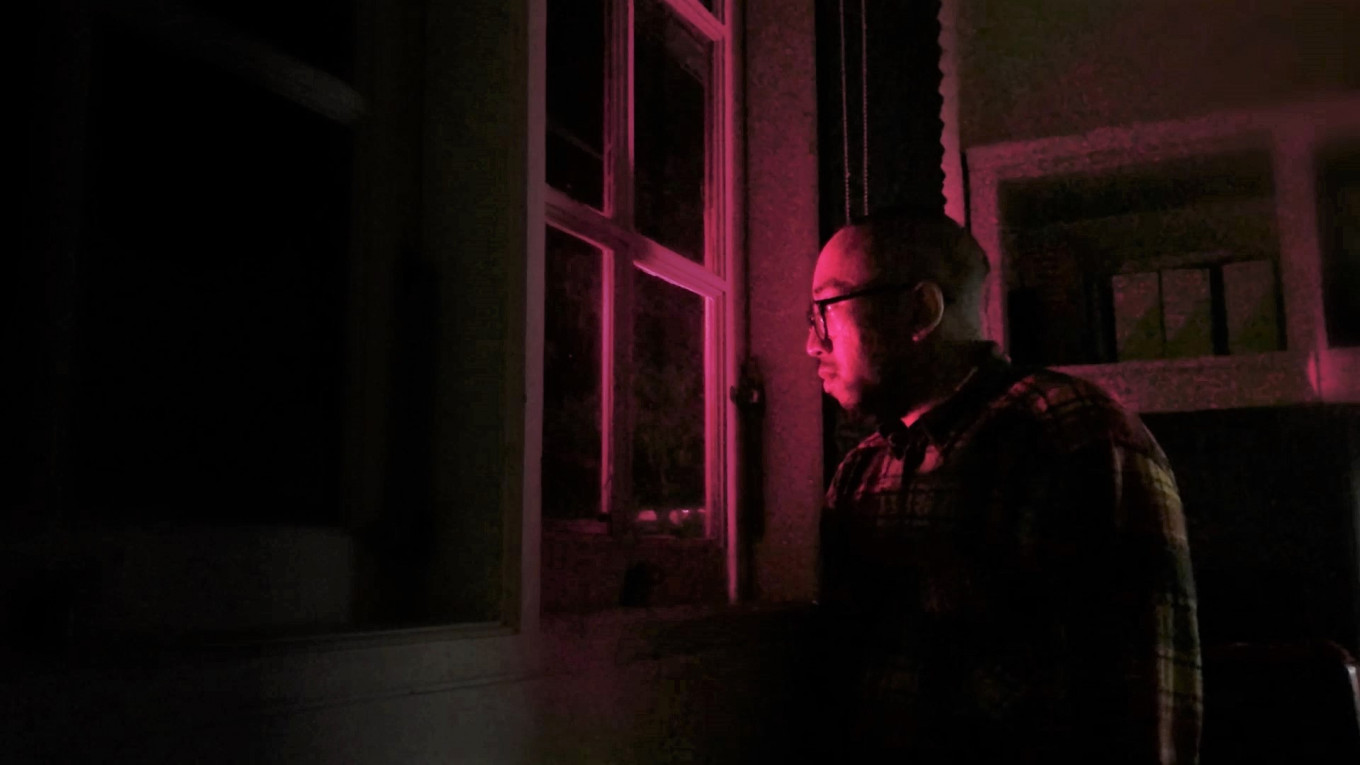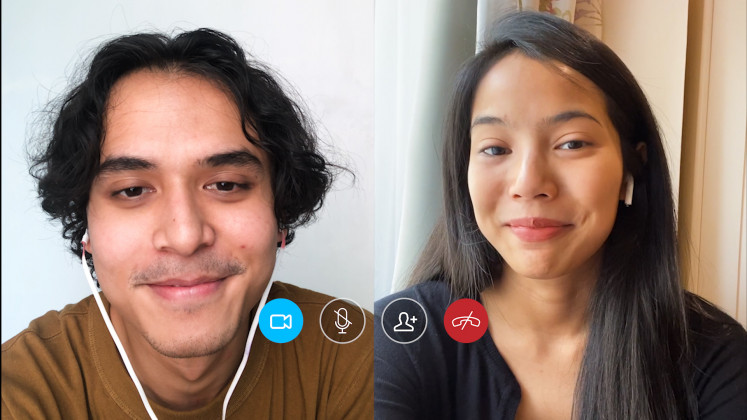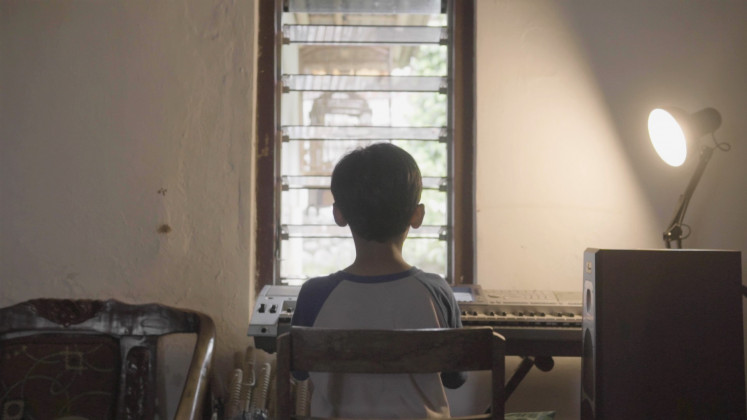Popular Reads
Top Results
Can't find what you're looking for?
View all search resultsPopular Reads
Top Results
Can't find what you're looking for?
View all search results‘Cerita Tentang Jendela’ captures life under lockdown
Being confined indoors during the pandemic in Indonesia is surely a strange experience; it is easy to feel isolated and alone in the process. The fact that billions of people across the globe are facing the same situation does little to offer solace.
Change text size
Gift Premium Articles
to Anyone
A
newly released short film titled Cerita Tentang Jendela (Stories about Windows), directed by Indonesian director Jason Iskandar and produced by Florence Giovani of Studio Antelope, was one of the first films in the country that responded to the current claustrophobic quarantine atmosphere.
Premiered on the Instagram television (IGTV) of the production house’s account @studioantelope on May 17, it was submitted as part of Jason’s open invitation made on April 27 for people to send footage of themselves doing activities in front of their home or room windows.
When Jason closed the open submission seven days later, he was surprised to receive a total of 278 videos from 167 people. He then sorted out the submissions before editing them into one coherent story within a three-week process.
Ultimately, these videos were bound together into a of a couple who are having a fight amid the COVID-19 pandemic, played by actors Alyssa Abidin and Jourdy Pranata.
Opening up: Despite not being able to meet each other physically, people connect through different platforms as depicted by actors Jourdy Pranata (left) and Alyssa Abidin in the film. (Courtesy of Studio Antelope/-)The two characters symbolize how all of us have to deal with our own unfinished business, personal struggles and concerns as we are dealing with the fears, anxieties and claustrophobia that the pandemic has induced.
This idea of how global, national and personal issues could collide, at least within the sociological context of Indonesia, is conveyed appropriately throughout the seven-minute short film, in which the two characters’ dialogs are interspersed by the footage selected from the open submission.
The two characters pepper their conversations with their observations of how the people around them are coping with the lockdown in different ways, shape and form while — true to the film’s core idea — using the window as a binding image that connects the inner world with that of the outer, which bridges our personal struggles to so many others out there also confined within their own homes.
The audience may find resonances of the bittersweet experiences they have while being stuck inside their homes, apartments or rented rooms for a prolonged period. Many people have tried hard to pass the time by engaging in new activities or intensifying old hobbies, such as taking up cooking and gardening, or spending more time reading books, playing games and watching films on the computer.
Creative endeavors: Many people turn to playing music and reading books to cope with the lockdown as captured in scenes from the short film 'Cerita tentang Jendela' (Stories About Windows). (Courtesy of Studio Antelope/-)The video call format also captures how individuals still seek social connection amid calls on physical distancing and social restrictions at this time, where they have turned to online video and call platforms more intensely than ever.
The film may inspire viewers to deepen their connections with their inner circle amid the abundance of spare time we all have, as connections can offer an antidote to our fears and anxieties, helping us share our sorrows and joys with others amid this trying time.
“About a month after people have retreated to their homes, many filmmakers have to put their on-location filming activities for various feature-length film and advertisement projects on hold. So, we decided to still make a short film remotely, from our own respective homes,” Jason told The Jakarta Post via video call.
Jason said the window became a very important image evoking sentiments around the voluntary lockdown amid the COVID-19 outbreak.
“Prior to this, we didn’t really pay attention to the windows in the places where we live, we just pass by our windows when we go to work early in the morning and when we return home; we rarely spend time at home. Maybe now, after we are staring at our windows more frequently than ever, we can see them through fresh eyes.”
Jason said he held a live online session with fellow filmmakers to gauge their responses to make the film true to life.
“They’ve been spending time chatting on the phone more frequently, contacting people with whom they haven’t been in touch for a long time. Some say their mothers have taken up cooking and really enjoy the activity and their fathers have been lost in gardening activities. We also capture the experience of those living in boarding houses, away from their families,” Florence said.
This is how these experiences have also been selected from the footage to be included in the film, she added.
Jason said initially he found directing the two actors remotely using conference calls awkward but soon got into the flow of it.
“We requested the actors to record the scenes of them having a video call on a smartphone themselves; we cannot check what they’re recording beforehand because we trust them. Film requires activation of the five senses, including smells, but this time, even the visual image was not immediate. But after directing the film for 30 minutes, we got used to it,” Jason said.
With this film, Indonesian filmmakers are joining a global trend of remote filmmaking to chronicle time under lockdown, mostly using video and Zoom call formats.
Examples include Canadian filmmaker Ingrid Veninger’s filmmaking-at-home challenge and Germany’s recent virtual film festival, highlighting filmmaker Lisa Charlotte Friederich’s documentary Live, an eerie story of people crying for human contact after endless video calls and lockdown enforcement.
May these films, while helping filmmakers engage in creative expressions, also warm the audience’s hearts amid these trying times. (ste)













